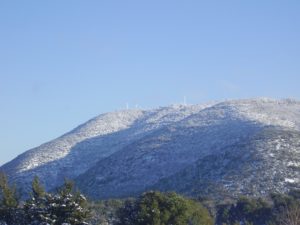“The Rock! His work is perfect,
for all his ways are just.
A trustworthy God who does no wrong,
he is righteous and straight.”
-Deuteronomy 32:4
In verse 4, Moses likens our God to a rock and through this metaphor gives us a picture of an immoveable and unshakeable being whose works are absolute perfection and justice.
The Hebrew term for “rock” is…
…TSUR.
It is spelled like this: צוּר
This idea of the Lord being a rock was indeed a principle first established in the Torah.
It wasn’t some freshly concocted New Testament principle.
In fact, there is nothing “new” in the New Testament.
Of course, for the Messianic believer, probably the first thing that comes to mind when you here that the Lord is like a rock is how the Messiah is also our rock.
Referring to Yeshua as our rock indeed identifies him as the uniquely chosen son of God who dwelt among us and obviously this was a issue that didn’t sit well with the ruling Sadducees and Pharisees.
Let’s talk a little bit about the real meaning of the word TSUR.
It does NOT mean some generic stone that we can just pick up off the ground.
Heck, it doesn’t even really mean a huge boulder.
If we were to really translate TSUR correctly, it would be more accurate to render it as a “mountain” or “cliff” because this word is really referring to a solid ridge or mound whose roots are firmly entrenched in the earth below but still tall enough to reach up into the heavens above.
A TSUR towers impressively over everything it overlooks whether it be plains, valleys and rivers or small towns and big cities with teeming populations.
And actually, referring to Hashem as our TSUR also fits in well with that other common term used in the Bible when referring to God: EL SHADDAI.
Recall that EL SHADDAI does NOT mean “God Almighty”.
We now know that SHADDAI derives from an Akkadian word that just means mountain.
That’s right folks.
EL SHADDAI quite literally means the “God of the Mountain”.
Recall also this was the name the Lord used when He appeared to Jacob.
So we can see the intimate connection between TSUR and SHADDAI as they both mean a mountain or a towering huge cliff.
And this also fits in well with the ancient Middle Eastern mindset at the time that believed that gods dwelt in high places.
CONNECTING THIS TEACHING TO THE NEW TESTAMENT
“…and they all drank the same drink
from the Spirit
— for they drank from a Spirit-
sent Rock which followed them,
and that Rock was the Messiah.”
-1 Corinthians 10:4




Leave a Reply